Here’s a list of Vegetables You Should Never Plant Together and Why to make sure you get the best quality harvest.
If you want to boost the productivity and flavor of your crops in the garden, then check out this list of Vegetables You Should Never Plant Together and Why.
Find the Best Way to Grow Tomatoes here
Vegetables You Should Never Plant Together and Why
1. Peppers and Cabbage
Vegetables in the brassica family, such as cabbage, broccoli, and kohlrabi, can impede the growth of nightshade family vegetables, including peppers – this is because brassica family vegetables produce a chemical called glucosinolate, which is harmful to nightshades.
The chemical breaks down into isothiocyanates which inhibit the growth of nightshade plants.
What to Plant with them:
Onions, tomatoes, and eggplant are suitable companion plants for peppers, while mint, cucumber, or lettuce make good companions for cabbage when planting.
Learn the Best Pepper Planting Tips here
2. Corn and Tomatoes

Corn and tomatoes should not be grown together because they are both susceptible to the same fungal disease, late blight. Growing them together increases the risk of the disease spreading to both plants.
Additionally, corn is a heavy feeder and requires a lot of nutrients, which can take away some of the nutrients available to tomatoes.
Finally, the corn can provide a ladder for the tomatoes, allowing them to climb too high and get damaged by strong winds.
What to Plant with them:
To enhance the flavor of tomatoes, they can be planted with basil or chives, but dill should be avoided. Carrots can also be a compatible companion plant.
On the other hand, when planting corn, it is recommended to pair it with beans and pumpkins.
Learn about Growing Corn in Containers here
3. Potatoes and Zucchini
Potatoes and zucchini are both members of the nightshade family, and they are susceptible to many of the same diseases. Growing them together can increase the chances of spreading these diseases, leading to lower yields and poorer quality produce.
Furthermore, they both have different growing requirements and can compete for nutrients and space in the garden.
What to Plant with them:
Zucchini plants can thrive when planted with corn, as the cornstalks provide a support structure for the vines. It also pairs well with melons and beans as companion plants.
When planting potatoes, it is recommended to choose a location near horseradish, beans, or herbs such as basil and thyme for optimal growth.
Want to Grow Potatoes in Containers? Click here
4. Sage and Cucumbers
Sage and cucumbers are susceptible to the same diseases and can spread them to each other if planted too close.
Sage is also an aggressive grower and can take over the cucumbers, crowding them out.
Additionally, sage can have a negative effect on the flavor of cucumbers, making them taste bitter.
What to Plant with them:
Dill, peas, and radishes make excellent companion plants for cucumbers. On the other hand, sage can be planted with rosemary or with cabbage and carrots to repel insects that are harmful to those crops.
Learn about Growing Cucumber in Pots here
5. Pumpkins and Summer Squash
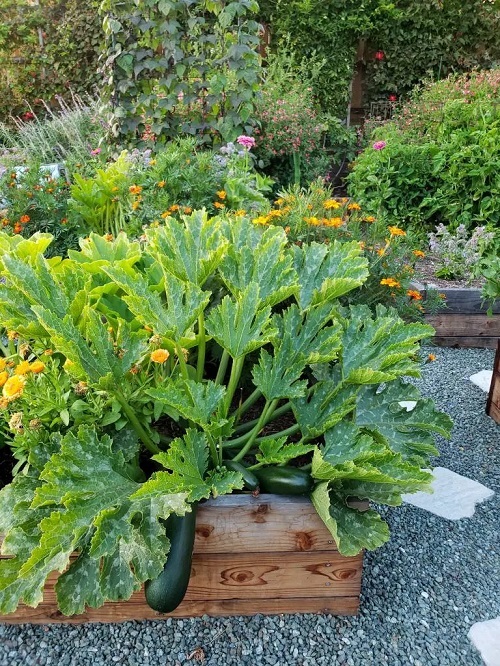
Pumpkins and summer squash are both members of the Cucurbitaceae family, but they have different growing habits and needs.
Pumpkins require more space to grow, as they need more room to sprawl. They also take longer to mature than summer squashes, so it can be difficult to coordinate their harvesting schedule.
Growing the two together might also lead to cross-pollination, resulting in hybrid plants that can produce undesirable fruit.
What to Plant with them:
Melons make good companion plants for pumpkins, along with radish and corns and they can climb up cornstalks as a support structure.
To control pests, summer squash can be planted with edible nasturtiums or with beans and herbs as companion plants.
Want to Grow Squash Vertically? Click here
6. Carrots and Parsnips
Carrots and parsnips are both root vegetables that require similar growing conditions, including full sun and moist, well-drained soil. However, they also have some needs that are totally different and make them difficult to grow together.
For example, carrots require loamy, permeable soil, while parsnips need heavier, clay soil.
Additionally, carrots are a shallow-rooted crop, while parsnips have a long, deep root system. The competing needs of each crop can lead to crowding and nutrient competition, which can reduce the overall yield of both vegetables.
What to Plant with them:
To repel harmful insects, it is advisable to plant carrots alongside rosemary, sage, or chives.
Parsnips, on the other hand, can thrive when planted near tomatoes, peppers, onions, and garlic.
Learn How to Grow Carrots from Carrot Tops here
7. Fennel and Eggplant
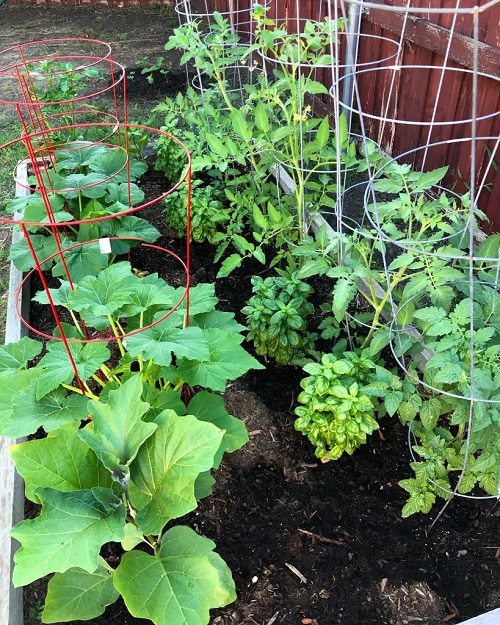
Fennel and eggplant have very different nutrient needs and have the potential to compete for nutrients in the soil.
When grown together, the plants may compete for nutrients, cause nutrient deficiencies, and lead to reduced yields.
Fennel also tends to attract certain pests and diseases that could affect the growth of the eggplant, which could lead to further problems.
What to Plant with them:
Eggplants require soil that is rich in nitrogen, making it suitable to plant them with beans, especially bush beans that help ward off pests that can damage eggplants.
While fennel has few companion plants in the garden, it can be grown in a separate patch or raised bed away from your vegetables and herbs.
Is Eggplant a Berry? Learn here
8. Beans and Onions
Beans and Onions are both heavy feeders and require a lot of nutrients from the soil to grow properly. Growing them together can lead to competition for nutrients, leaving both plants unable to reach their full potential.
In addition, both are susceptible to the same pests and diseases, so it is best to keep them separate to avoid any further spread.
What to Plant with them:
Onions can thrive when planted with peppers, lettuce, and carrots. Beans, being nitrogen-fixing plants, make great companions for fast-growing plants such as corn and potatoes.
Learn about some Useful Onion Skin Uses here
9. Asparagus and Broccoli
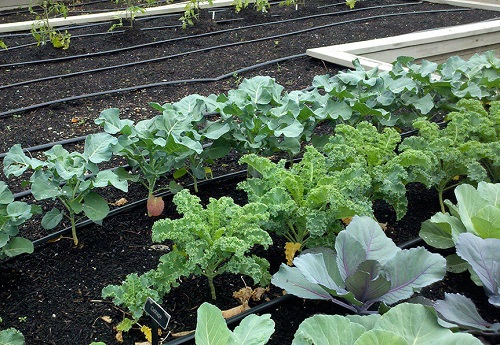
Growing Asparagus and Broccoli together can create competition for nutrients, water, and space. They require different soil pH levels and fertility levels, which can create an imbalance in the soil.
Broccoli is prone to many of the same diseases and pests that can affect Asparagus, so growing them together can put both crops at risk of getting infected.
What to Plant with them:
Broccoli can thrive when planted alongside aromatic herbs, radishes, spinach, and cucumbers. Asparagus, on the other hand, prefers to grow in its own space or with herbs such as dill, parsley, and basil.
Learn about Growing Broccoli Sprouts here
10. Peas and Garlic
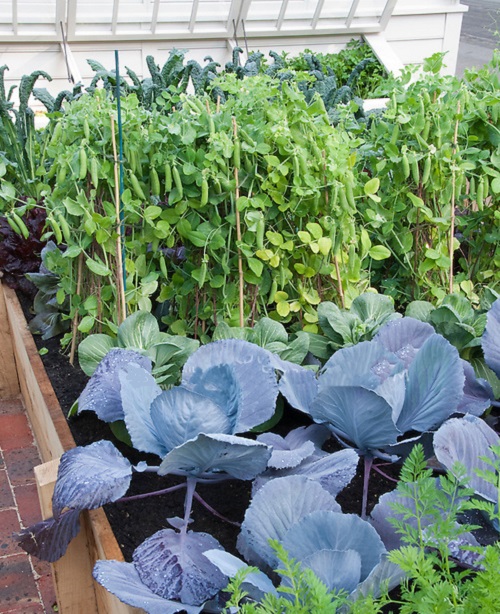
Peas and garlic require different soil and nutrient levels.
Additionally, garlic has a strong odor and can interfere with the growth of peas. The strong scent of garlic can also confuse beneficial insects and birds, which can prevent them from pollinating the peas.
When planted too close together, garlic can stunt the growth of peas, leading to a lower yield.
What to Plant with them:
Garlic can serve as a natural pest repellent for various vegetables and herbs such as tomatoes, eggplant, and dill, and even deter rabbits. On the other hand, peas can be planted with beans, corn, or cucumbers.
Read about the Vegetables You Can Grow Indoors here
11. Cucumbers and Aromatic Herbs
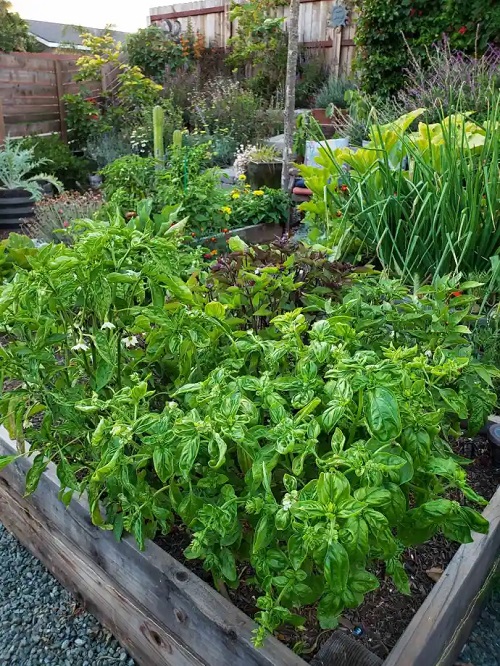
Growing cucumbers and aromatic herbs together can be problematic as the cucumbers can cause the herbs to become bitter and unpalatable.
Cucumbers can also attract pests, such as aphids or whiteflies, to the herbs, which can ruin their aromatic qualities.
What to Plant with them:
You can plant dill with cucumbers, as it improves their growth and flavor; it attracts beneficial insects like ladybugs and hoverflies. Basil, parsley, chives, and cilantro are also good companions of carrots.
Learn How to Grow Herbs with a Glass of Water here
12. Carrots and Dill
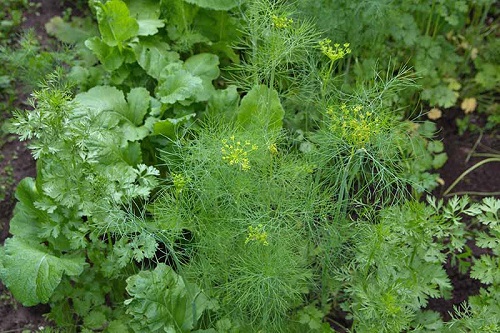
Carrots and dill are both members of the Apiaceae family, which is prone to disease and pest problems, and growing them together increases the risk that these problems will spread from one plant to the other.
Additionally, dill is a tall plant and can shade out shorter carrots, reducing their potential yield.
What to Plant with them:
Dill and marigolds make a good companion planting combination as they can help repel pests like nematodes and whiteflies. Also, dill can attract beneficial insects like wasps and hoverflies, which can help control pests that damage broccoli heads.

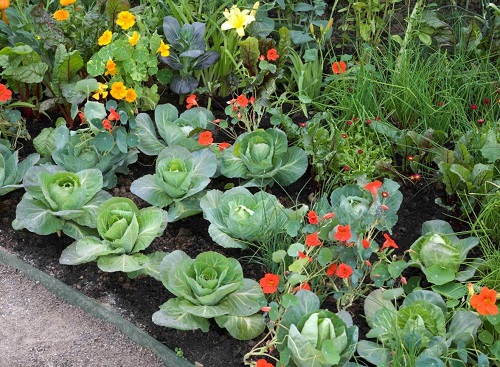
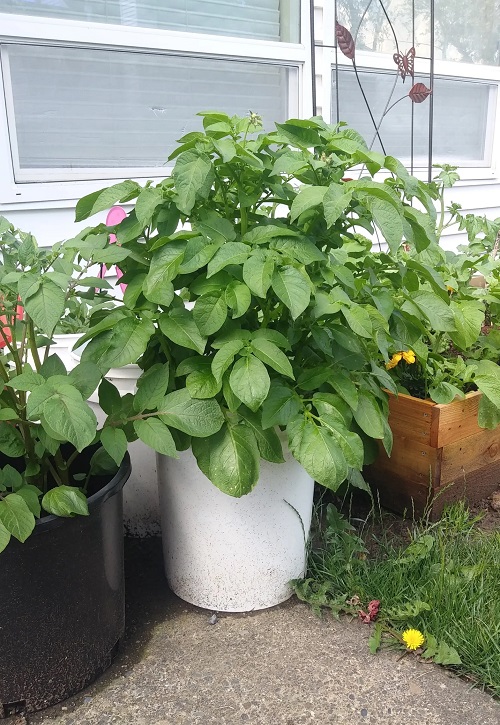
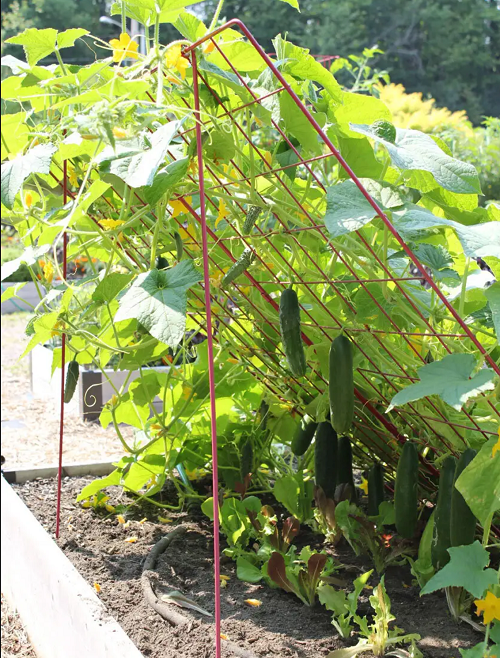
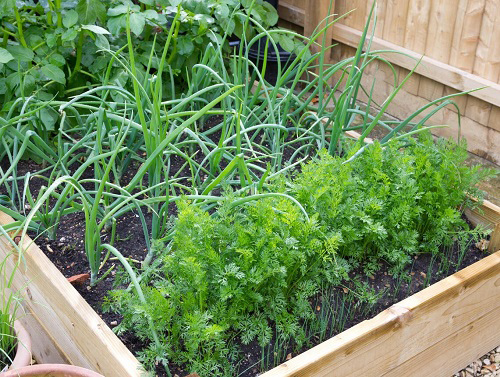


How Many Watermelon Seeds Will Kill a Human
🍉 Watermelon is a refreshing fruit that is enjoyed by many during hot summer days. It is sweet, juicy, and filled with essential nutrients that the body needs.